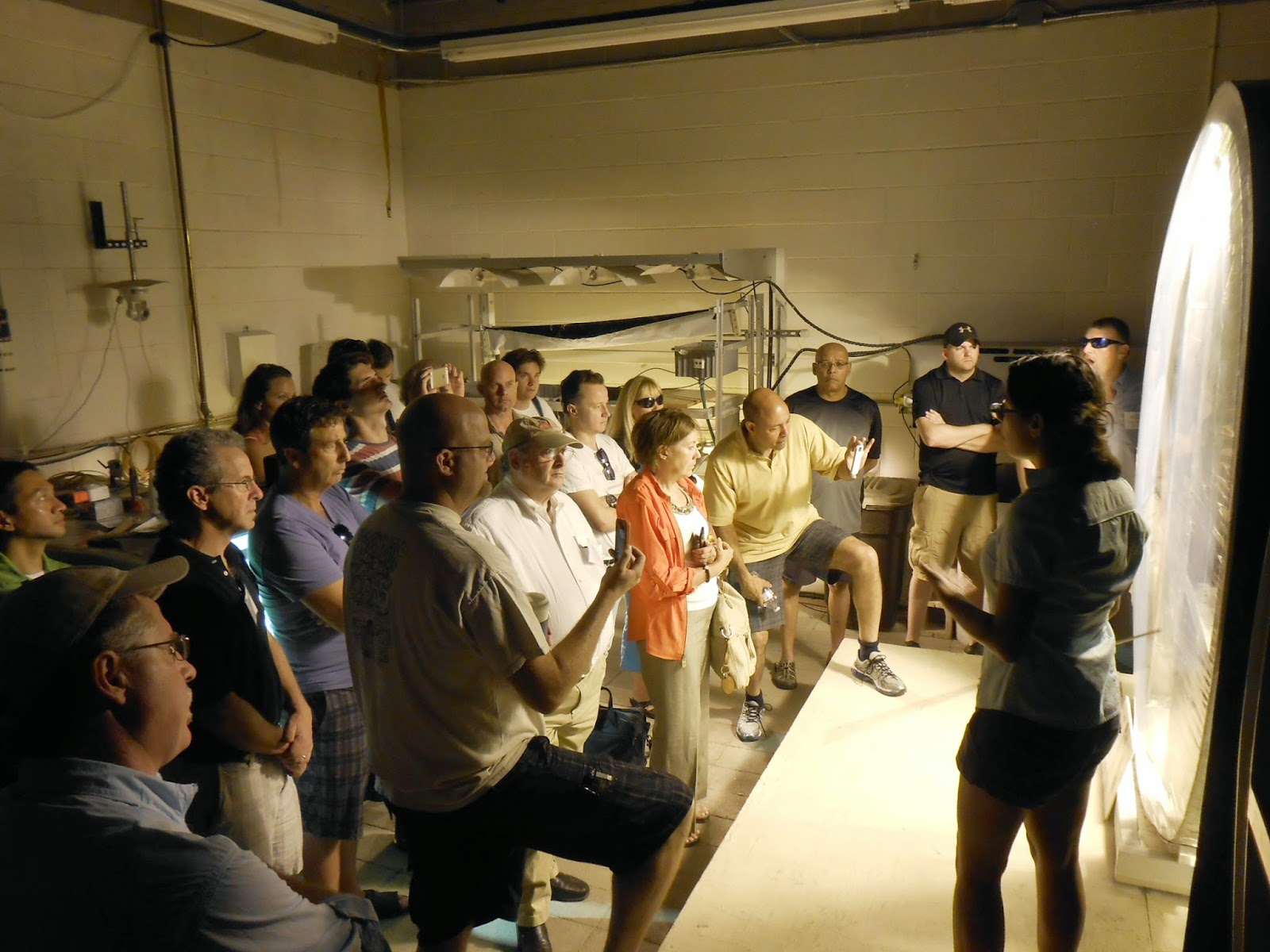
Attendees at the first “Realities of Growing Plants
Indoors” Short Course learned what it takes culturally to produce controlled
environment crops as well as how to finance and market their businesses.
University of Arizona he said growers and would-be growers aren’t talking
enough to the people who are interested in investing in the industry.
Giacomelli, who is director of the university’s Controlled Environment
Agriculture Center and a professor in Agriculture and Biosystems Engineering,
saw an opportunity to bring the two groups together at the first “Realities of Growing Plants Indoors” Short Course,
which was held in Tucson in July.
to know about the possibilities of putting their money into production in
controlled environment agriculture,” Giacomelli said. “They feel they don’t
know enough about the industry. I was trying to get them together with growers
so that they could have some discussion. They had the opportunity to share
their vocabulary, their activities and the things that need to be done if they
want to invest in a successful business.
investors. Growers need to know how to make presentations and be able to
provide the information investors need in order to satisfy their stakeholders
if they are going to lend money or invest in a business.”
were provided with the basics applied “how-to-grow” controlled environment
agriculture.
“The grower-focused presentations had an emphasis on
indoor production, which included greenhouses and also closed environments such
as vertical farming,” Giacomelli said. “Topics included irrigation, climate
control and lighting. We gave them some applied horticultural information that
they should at least be aware of and then learn more about if they want to get
into this business and grow indoors.”
business
During the last half of the second day the Short Course
transitioned to the business side.
entrepreneurial horticultural activities,” Giacomelli said. “This presentation
transitioned the discussion to the third day where we conducted an investor and
business forum.”
2-hour tour of the university’s production and research facilities including a small,
commercial-sized tomato greenhouse, a supplemental lighting research facility
and a small grow box for greens from Japan.
growing was like in a traditional greenhouse using the sun as the light source
as well as growing inside using only electrical lamps,” Giacomelli said.
including a produce distributor, two entrepreneurs who started their own indoor
food production companies, a regional buyer for a national grocery store chain
and a philanthropist investor.
 |
| Members of a business forum panel who spoke to Short Course attendees included a produce distributor, two entrepreneurs who started their own indoor food production companies, a regional buyer for a national grocery store chain and a philanthropist investor. |
“By bringing the two groups together we tried to give
those growers and would-be-growers who are considering starting a horticultural
business a chance to hear from those people who could provide them with a
reality check,” Giacomelli said.
For more: Gene
Giacomelli, University of Arizona, Ag & Biosystems Engineering Department,
Controlled Environment Agriculture Center; (520) 626-9566;
giacomel@ag.arizona.edu; http://ag.arizona.edu/ceac.
Worth, Texas; dkuack@gmail.com.
Visit our corporate website at https://hortamericas.com



